How To Get Clear Skin

Maintaining a clear complexion is not always an easy task, especially if you have acne-prone skin. Even worse, your skincare treatment could actually be contributing to your breakouts. Using plant-based, vegan skincare products like bioClarity can help prevent and treat common skin issues. While finding the right acne treatment is a critical part of keeping your complexion blemish-free, complete skincare also involves your overall health and lifestyle. From your gym habits and eating behaviors to sleeping patterns and makeup routine, learning how to properly care for your skin requires balance, dedication, and consistency.
Want to know how to have clear skin? Opting for plant-based skincare products is your first step on your journey to a healthier complexion. To help you get started, our definitive guide of tips for healthy skin will teach you how to get clear skin and keep your face looking vibrant and fresh, no matter your skin type. From treating back acne to learning how to prevent acne scarring, these professional tips will not only help you keep your skin clean and clear but also improve your overall well-being.

- What’s Your Skin Type?
- Know the Best Skincare Ingredients
- Be Mindful of External Factors
- Reevaluate Your Makeup Routine
- Adjust Your Diet
- Improve Your Sleeping Habits
- Take Care When Exposing Your Skin to the Sun
- Control Your Stress
- Stay Active
- Find the Right Acne Treatment
- Use the Correct Face Washing Technique
- Keep Your Skin Hydrated
- Don't Forget to Exfoliate
- Key Takeaways
What’s Your Skin Type?
Before you can find the right skincare regimen for you, you need to understand what skin type you have. There are five general skin types: normal, oily, dry, combination, and sensitive. If you’re unsure about what skin type you have, take a look at the characteristics of each below:
Normal Skin
Those with normal skin types generally exhibit few blemishes, have small, barely visible pores, and smooth skin texture.
Oily Skin
Those with oily skin experience quite a bit of shine, and very often struggle with acne breakouts. Excessive oil can result in larger pores, and you may find that your makeup “slides” off during the day without reapplication.
Dry Skin
Those with dry skin have small, invisible pores. Dry skin can lead to irritation and flakiness, and you may observe dry patches across your face.
Combination Skin
Combination skin exhibits the presence of two or more of the aforementioned skin types. The skin is often oily in the T-zone, while other portions of the face may be dry.
Sensitive Skin
Those with sensitive skin may experience any of the above skin types but with added sensitivity. They may be more vulnerable to products with irritating chemicals and fragrances.
10 Tips for Clear Skin
Whatever skin type you have, these 10 tips are the answer to “how to get clear skin” by helping you make small but important changes to your routine that will lead to a healthier, clearer complexion.
1. Know the Best Skincare Ingredients
When building your skincare routine, it's important to know which ingredients are best suited to address your skin concerns. On top of that, your skin will further benefit from ingredients that are kind and nourishing rather than harsh and irritating. Here are some of our fave skincare ingredients for achieving a healthier, clearer, nourished complexion.
Salicylic Acid
Salicylic acid is a beta-hydroxy acid that gently exfoliates skin and helps clear pores of dirt, oil, and bacteria. It's the star ingredient in Treat, our gentle yet effective acne treatment gel that battles breakouts without the burn.
Floralux
Floralux is our exclusive blend of copper, chlorophyll and antioxidants made to fight breakouts by combating bad bacteria and oxidative stress. This powerhouse ingredient is also designed to help visibly reduce redness and hyperpigmentation, even skin tone and texture, fight free radical damage, and promote collagen health.
Tea Tree
Tea tree is a great ingredient for those with oily and acne-prone skin because of its antibacterial and anti-inflammatory properties, which help unclog pores and reduce oil. If using pure tea tree oil on the skin, remember to dilute it first as it can be irritating. Alternatively, look for skincare products that are formulated with tea tree, like our Pore Purifier clarifying masque.
It's Pore Perfection
A complexion perfecting superfood masque that instantly tautens and tightens skin without over-drying it, while making pores petite.
Get RefreshedClay
You've likely seen clay in face masks, used as a way to treat skin to an at-home facial. Clay absorbs excess oil, draws out impurities and minimizes the appearance of pore size, although it's important not to overuse clay masks as doing so may cause dryness.
Niacinamide
Also known as vitamin B3, niacinamide helps visibly reduce appearance of pores, improves uneven skin tone, and strengthens the skin barrier. Niacinamide is often found in serums and treatments like our Restore gel, made to nourish skin, battle redness and hyperpigmentation, and leave skin balanced and dewy.
Green Tea
If you're a fan of drinking green tea, you'll be happy to know that it also has benefits for your skin! Green Tea contains epigallocatechin gallate (EGCG), a catechin that has anti-inflammatory and antibacterial properties. It's been shown to help minimize signs of aging, soothe skin, protect against free radical damage, and fight acne by reducing oil production.
Licorice Root
Licorice root is a popular ingredient in brightening and calming skincare products. It has anti-inflammatory properties and has a reputation for soothing the skin, protecting against sun damage, and combatting discoloration by preventing dark spots from forming as well as fading existing ones.
2. Be Mindful of External Factors
Your environment has an effect on the health and appearance of your skin. The three main factors to be aware of are pollution, seasonal changes, and sun exposure.
Pollution
Pollutants in the form of dirt, dust and soot pose a risk to your skin’s health, especially if you live in urban areas. Pollution can damage your skin’s barrier function and cause irritation, breakouts, and premature aging. However, deep cleansing, hydration, and antioxidant-rich products can all make a difference.
Seasonal Changes
As the seasons change, so do temperatures, humidity levels and more. Depending on where you live, these changes can wreak havoc on your skin so be sure to adjust your skincare routine accordingly throughout the year. For example, load up on hydration and moisture during the colder seasons then switch to a simpler, lighter routine during the warmer seasons.
Sun Exposure
Unprotected sun exposure can lead to sunburn, worsened breakouts and hyperpigmentation, and increased risk of skin cancer. Make it a daily habit to wear sunscreen to help prevent discoloration, promote an even skin tone, and keep the skin on your face and body healthy overall.
3. Reevaluate Your Makeup Routine
While makeup doesn’t necessarily cause acne, it can definitely play a role in your skin’s health and appearance. Many who struggle with acne use makeup to cover up dark marks, pimples, and scars, but could this practice be worsening your acne condition? Not necessarily, but use caution to ensure your cosmetic routine doesn’t negatively affect your skin’s health. According to numerous studies, makeup can actually improve the quality of life of acne patients without aggravating the skin, so long as it’s applied correctly.
Choose the Right Products
One of our top clear skin tips is finding the right products for your skin. There has been much debate about the effect of non-comedogenic skincare versus their comedogenic counterparts, but some dermatologists recommend the former to patients struggling with moderate to severe acne who are trying to figure out how to get clear skin. It’s also important to consider your skin type as you select makeup products. For example, those with oily skin should avoid heavy, oil-based foundations, while those with dry skin might need the extra moisturizing features provided by such cosmetics.
To simplify your skincare and makeup routine, add in Primed & Ready, which is a 2-in-1 deeply hydrating primer that doubles as an everyday moisturizer. It's designed to help hydrate skin, blur pores and imperfections, prep your skin for flawless makeup application, and extend the wear of your makeup to lock in your look all day (or night) long.
Get Ready for Your Close-up
This 2-in-1 primer locks in your makeup and keeps your skin hydrated all day. Go ahead and snap a selfie -- no filter needed.
Get PrimedApply Light Layers
If your products aren’t the issue, the way you’re applying them may be the cause of your breakouts. Avoid caking heavy amounts of makeup onto your skin. While this won’t necessarily block your pores, it can make it much more difficult to completely remove makeup. Leaving excess product on the surface of your skin makes it easier for it to find its way into open pores. Layer your makeup lightly to avoid applying more than you need. Using an alcohol-free misting toner like our vegan setting spray can also prevent the need to reapply throughout the day.
Pay Attention to Your Brushes
If you apply your makeup with brushes, consider the last time you washed them. Makeup brushes can accumulate with dead skin cells, old makeup, bacteria, and more. As you apply an unclean brush across your skin, you may be spreading bacteria around, which could lead to acne blemishes. If you have an open sore on your skin, bacteria can get under the surface and cause an infection. Brushes hardened with product can also become abrasive to your skin, creating a rough texture and causing excess irritation. Washing your makeup brushes every 7 to 10 days can help you maintain clear skin.
Remember to Remove Your Makeup
If you are wearing makeup regularly, the most important task is removing it before bed and before any intense workout sessions, like going to the gym. A vegan, non-toxic cleanser is a great first step because it can help remove even the heaviest layers of makeup, leaving your skin clean and ready for the next step of your routine. Try Cleanse, our gentle foaming face wash made to sweep away makeup, dirt and bacteria, or Barefaced, our jelly cleanser that gently exfoliates, brightens and hydrates skin.
4. Adjust Your Diet
A poor diet doesn’t necessarily cause acne breakouts. However, there is mounting evidence to the fact that certain foods may worsen a pre-existing acne condition. As detailed in our guide “What Causes Acne?”, there are foods that may exacerbate skin conditions.
While the link between diet and acne has not been solidified, many dermatologists recommend their patients cut out certain foods with high ratings on the glycemic index, as these can result in increased levels of blood sugar in the body. (The jury is still out whether chocolate causes acne.) This may trigger the production of insulin, which can lead to more oil production. As we know, an increase in oil means your pores may become more easily clogged.
If your acne seems worse when your diet is less balanced or when you eat certain foods, you might want to make some adjustments to see if it’s contributing to your skin problems. There are a few things you can try eliminating from your diet to improve your skin, including dairy and greasy fast food.

Alcohol
Cut back on alcohol intake. Alcohol is made up of sugars and can spike insulin levels which can cause inflammation.
Dairy
There have been numerous studies showing a link between dairy and the prevalence of different types of acne. It may be due to hormones and growth factors found in milk. Try cutting back on dairy products in your diet and see if it makes a notable difference in your skin.
What You Should Eat
When it comes to foods for clear skin, try sticking to a lean diet of low-fat proteins including chicken and fish, and stock up on whole grains and dark green, leafy vegetables.
Omega-3 Fatty Acids
For patients wondering how to get clear skin by changing their diet, some dermatologists recommend an increased intake of omega-3 fatty acids. These can help ease inflammation that leads to skin conditions. Grab some seafood the next time you’re in the supermarket, as fatty fishes like salmon provide an excellent source of omega-3s.
Antioxidants
Eating more antioxidants can help protect your skin from sun damage and help ease the pain and severity of breakouts. Foods with Vitamin C such as oranges and tomatoes and Vitamin E such as avocados and spinach contain many antioxidants. Green tea can be a wonderful source of antioxidants and when applied topically, can also have amazing nourishing effects for the skin. Our three-step skincare regimen uses green tea extract to provide relief from itching, dryness, and inflammation.
Before making significant changes or introducing any supplements to your diet, you should consult your primary physician or nutritionist.
5. Improve Your Sleeping Habits
Getting the right amount of rest can greatly impact the appearance and feel of your skin. From bedding to sleep deprivation, your skin needs those hours of shuteye to repair itself, and there are a variety of factors that can affect the feel and health of our epidermis.
Bedding Concerns
It’s important to regularly wash and replace your sheets, specifically your pillowcase. We sweat and shed skin cells in our sleep, meaning our bedding can become a hotbed for blackheads and bacteria growth. You might also consider purchasing silk and/or satin pillowcases. This material has been purported to help our skin retain moisture and prevent wrinkles. Your hair may also benefit, as these slippery pillowcases can actually lead to less breakage in your hair and eyelashes, and may even help you wake up with less bedhead in the morning.
The Effects of Sleep Deprivation
Sleep deprivation affects more than your concentration and energy levels throughout the day. Sleep deprivation can actually result in a wearing down of your skin’s natural barrier function. This damage can lead to dryness, increased irritation, and more sensitive skin. Not getting the right amount of shuteye can increase the rate at which your skin ages, leaving you with wrinkles and brittle skin much earlier than you might have anticipated.
How to Get Better Sleep
There are numerous ways in which you can improve upon your sleep. While everyone’s sleeping necessities vary, health experts generally recommend getting at least seven hours per night. Try to maintain a regular sleep schedule by going to sleep and waking up at similar times each and every day, even on the weekends. Try to limit your alcohol intake a few hours before sleeping and don’t eat heavy meals before bed. Avoid caffeine for six hours prior to bedtime, and make sure you’re taking part in regular exercise to ensure your body is tired and ready to rest at the end of the day.
Beauty sleep doesn’t automatically equate to perfect skin, but it certainly helps, so make sure you’re getting enough rest every night.
6. Take Care When Exposing Your Skin to the Sun
You’ve heard it before, but excessive sun exposure without the proper protection can result in dry, cracked skin and eventually lend itself to wrinkles and even skin cancer.
Understanding Ultraviolet Rays
It’s important to protect your skin from UV radiation, as this is the factor that causes skin damage and leads to skin cancer. There are two types of UV radiation, Ultraviolet A (UVA) and Ultraviolet B (UVB).
Ultraviolet A (UVA): UVA radiation can pass through glass and is generally the cause of premature aging, resulting in brittle, wrinkled skin. It may also play a role in basal cell carcinoma and melanoma.
Ultraviolet B (UVB): UVB radiation is linked with the development of melanoma and skin cancer. This type of radiation is the cause of sunburns and cannot penetrate through glass.
Protecting yourself against both types of UV radiation is vital to skin health.
SPF is Your Skin’s BFF
Every time you go outside, use sunscreen, even if it’s cloudy. Daily use of a mineral-based broad-spectrum sunscreen will help protect against both types of UV radiation. It’s important to find sunscreens that are water-resistant with a sun protection factor (SPF) of 30 or higher.
Don’t Miss These Forgotten Spots
When we apply sunscreen, many of us focus on the face and shoulders, but always be sure to apply plenty of sunscreen to your chest. This area ages much more quickly. Don’t forget to protect your ears, and wear hats to protect the sensitive skin on your scalp. Always apply balm with SPF of 30 or higher to protect the sensitive skin on your lips.
Protection Beyond Sunscreen
There are other ways you can protect yourself from UV rays, or at least limit your exposure. Try to limit your time spent in the sun between the hours of 10 a.m. and 4 p.m., which is when the sun’s rays are their most intense. Always wear sunscreen around reflective surfaces, whether it be the ocean’s water or slopes covered with snow.
More than sun-proof. Life-proof.
Protect your face and body from harmful UV rays, free radicals, blue light, and environmental pollutants with these non-nano 100% mineral zinc oxide sunscreens for everyday use.
Protect Your Glow7. Control Your Stress
You may have noticed your acne flares up when you’re stressed out, whether it be a big test coming up or an interview for a new job. That’s because your mental state can physically affect your health. The presence of more stress hormones can result in an increased production of oil and worsen inflammation on the skin. This can result in painful breakouts and dull, dry skin.
Seven out of 10 adults in the U.S. report daily stress and anxiety, and a majority of people say it interferes with their lives. Learning to combat stress and relax in a healthy way can help you improve your mental state and reap the physical benefits, including a clear complexion.
Meditation
If you’ve never practiced meditation, it may be time to start. This practice has been used for thousands of years to curb feelings of anxiety, tension, and depression. Meditation can result in a calmer mental state and may help you gain a new perspective, become more self-aware, and reduce negative feelings.
Exercise
Regular exercise can lower stress levels and improve your mental state. It increases endorphin production, improves self-confidence, and relaxes the body. This can improve your sleep, which also lowers stress levels.
8. Stay Active
Exercising is an important aspect of holistic health that not only helps manage your stress, but is also essential in your pursuit of clear skin. Beyond helping your heart, lungs, and emotional wellbeing, regular exercise can contribute to healthier, more vibrant skin.
How Exercise Contributes to Clear Skin
When you exercise, blood flow increases. This increased blood flow helps nourish your skin cells, as blood carries oxygen and nutrients to your skin cells. Better circulation also helps carry off waste products, including free radicals. While exercise won’t “detoxify” your skin, the increased blood flow can help flush debris from your cells out of your system.While exercising is vital for your health and can do wonders for your skin, it also has its risks.
Perspiration and Salt
When we perspire, salt can accumulate on the skin. This can worsen skin conditions such as psoriasis or eczema. It’s important to wear moisturizer on areas where you get breakouts of these skin conditions, as this can prevent the buildup of perspiration. It’s also essential to blot away sweat after working out; showering can worsen these conditions so it’s best to avoid excessive water exposure.
Exercising Outdoors
Many prefer exercising outdoors in place of heading to the gym, but the sun exposure involved with an outdoor physical regimen can wreak havoc on your skin. Always be sure to apply sunscreen before heading outside, and make sure to protect your scalp with a hat.
Shared Gym Equipment
If you’re using that communal yoga mat at the gym or forget to wipe down the equipment with antibacterial wipes before using them, you may be spreading around a stranger’s bacteria. Shared gym equipment can result in the spread of bacteria, and should you touch your face during or after a workout, that bacteria may work its way into your pores and result in an infection or acne blemish. Other skin conditions may also be contracted through dirty gym equipment, including infections like ringworm. It’s best to wipe down your shared gym equipment and avoid touching your face while working out.
9. Find the Right Acne Treatment
If you think you’re alone in your battle against acne, think again. Acne Vulgaris is the most common skin condition in the United States, and it affects 40 to 50 million people each year.

Many who suffer from acne have tried a host of potential solutions, but many of these can result in painful or even dangerous side effects. Harsh products that contain sulfur, hydrogen peroxide, or benzoyl peroxide are known to cause dryness and further irritation. Did you know that using products that contain sulfur for acne can lead to skin discoloration and even worsen your oily skin, or that using products with hydrogen peroxide for acne can cause skin damage?
Thoroughly researching products and ingredients is critical to protecting your skin. To avoid ending up with damaged skin, look for plant-based products for clear skin that are gentle and effective.
Our Clear Skin Routine is a twice daily, 3-step regimen that fights acne and soothes skin without harsh chemicals. This routine includes a vegan cleanser, powerful exfoliating acne treatment, and antioxidant-rich gel-based treatment, all of which are clinically proven to begin clearing skin in as little as two weeks. The secret is Floralux®, which is naturally derived from chlorophyll (the green stuff in plants) and is dermatologist-developed, tested, and recommended for all skin types.
10. Use the Right Face Washing Technique
Many people struggle to figure out how to get clear skin year-round. Using high-quality products is essential, but using them correctly is equally important. To ensure your skin gets the tender loving care it needs, start with the basics by following the recommended steps for washing your face. Water temperature should be kept lukewarm and you should avoid excessive exposure to water when washing your face as this can cause dryness. Do not aggressively scrub at your skin; this won’t unclog pores but it can cause your skin to sag and cause inflammation.

Be sure to wash your face at least twice daily, once in the morning and before bed, especially if you have oily or acne-prone skin. However, pay close attention to how your skin reacts and stick to washing just once daily if you experience any dryness.
9. Keep Your Skin Hydrated
While you may be hesitant to moisturize, your skin needs it. Using the right moisturizer can combat dryness caused by exposure to the elements, other products you’re using, or even through the winter. As long as you are selective when choosing a moisturizer, you can avoid making your acne or oily skin worse. When shopping for a moisturizer, the description should mention that it is oil-free or non-comedogenic. Our vegan moisturizer is lightweight and perfect for oily to normal skin, and made with plant-based ingredients that won’t clog your pores.
If your skin is in need of extra hydration, a hydrating serum like Drink It Up is just what you need to quench your skin's thirst. This oil-free and highly-concentrated serum delivers an immediate surge of hydration while continuously releasing moisture all day or all night.
Endless Hydration
Soak your skin in moisture, fight signs of aging, and keep your skin soft and dewy with this super-hydrating serum.
Stay Hydrated11. Don’t Forget to Exfoliate
We shed skin cells each day and new cells push to the surface. If dead skin cells are left to accumulate on the skin, our pores can become clogged, causing acne blemishes. Proper exfoliation removes this barrier of dead skin cells without harming the new skin waiting underneath. Skin can be exfoliated physically with abrasive scrubs or chemically, using topical applications that contain gentle acidic solutions that dissolve and remove the dead skin cells without harsh rubbing. bioClarity harnesses the power of salicylic acid, a natural exfoliate, for an acne treatment gel that gently but effectively breaks down dead skin cells and leaves the skin feeling smooth and looking vibrant.
If you’re in search for the answer on how to get clear skin, you’re in the right place. These 10 tips can help you reach your skin goal through fairly simple changes. By combining healthier lifestyle habits with a nutrient-packed skincare routine, you can have the clear complexion you’ve always wanted.
Key Takeaways
- It is possible to have clear, glowing skin, even if you struggle with acne.
- The 3-step Clear Skin Routine from bioClarity is designed to treat existing acne and prevent future breakouts.
- It’s important to blot or wash your skin free of sweat after excessive perspiration, as sweat left to sit on the skin can result in blocked pores and worsen skin conditions like psoriasis and eczema.
- Controlling stress levels can lead to improved mental and physical health, and may help alleviate breakouts.
- Using plant-based skincare products in your daily routine can avoid the negative side effects associated with chemical-rich ingredients that dry out your skin.

Abby Vinas
Abby Vinas has long been an active member of the holistic health community, advocating in favor of its benefits to both our physical and emotional well-being. Her commitment to leading a healthy lifestyle has made her an authority on self-care practices. Abby is passionate about fitness, nutrition, and proper skincare, and is also an avid lover of avocado toast and dog-petting.

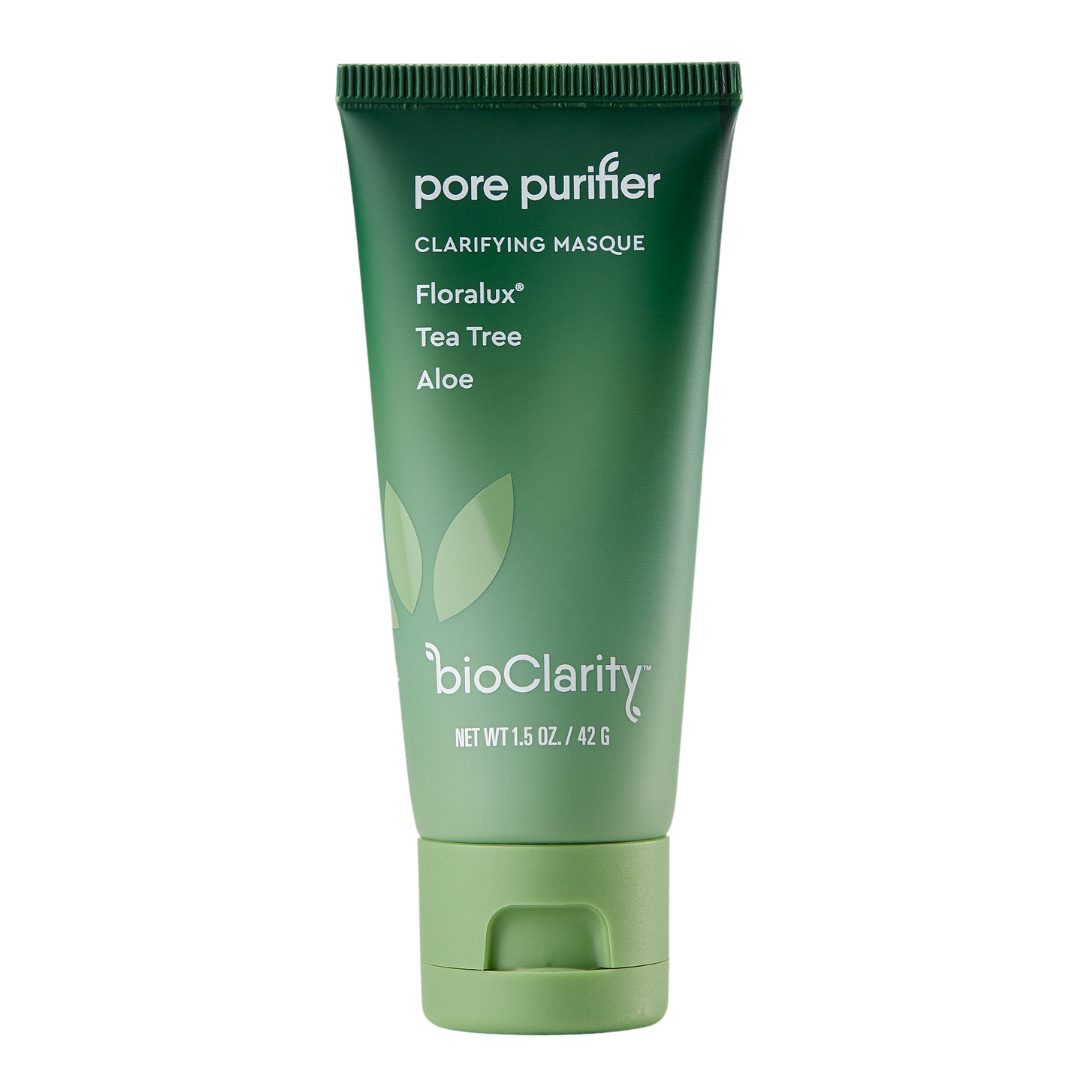



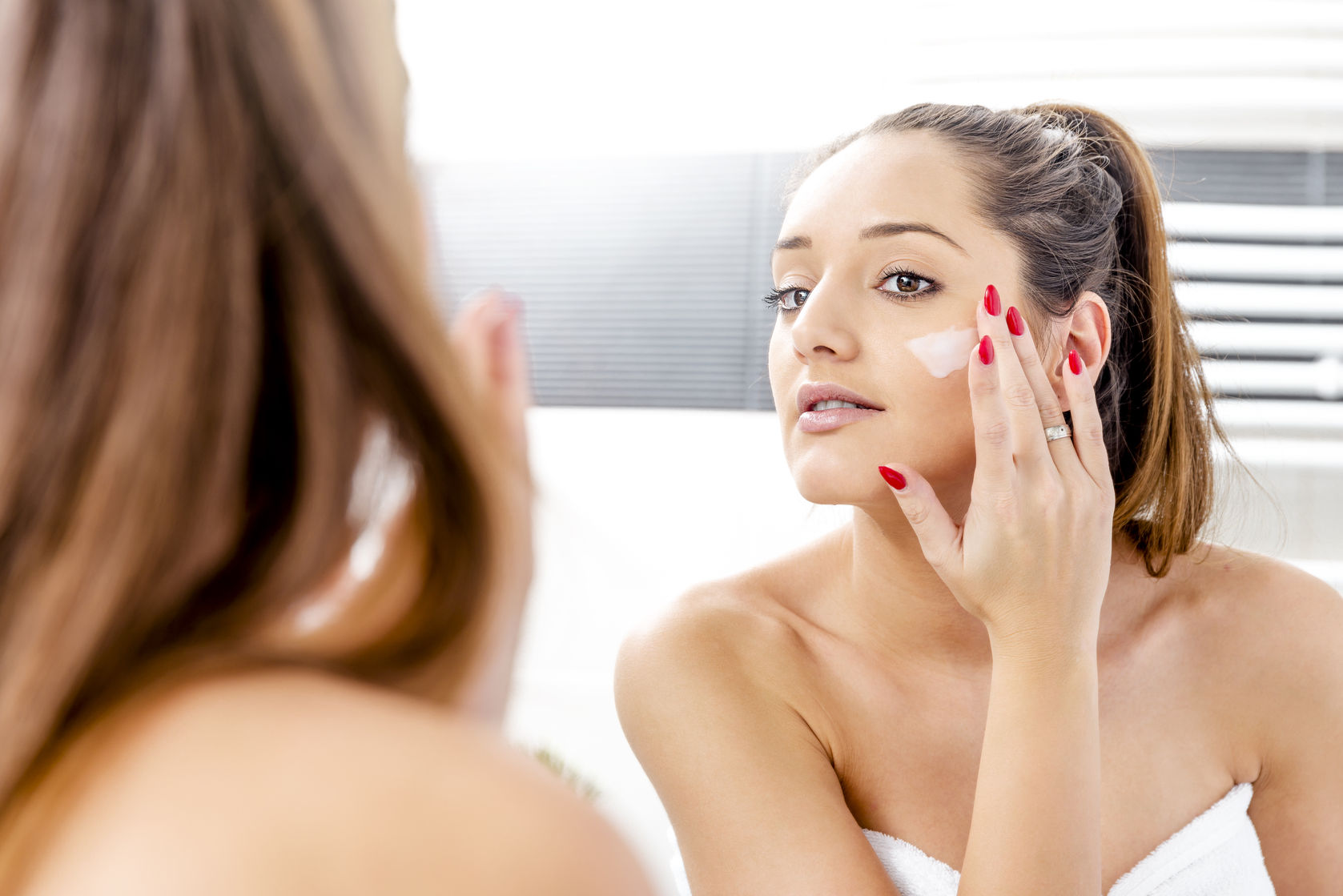
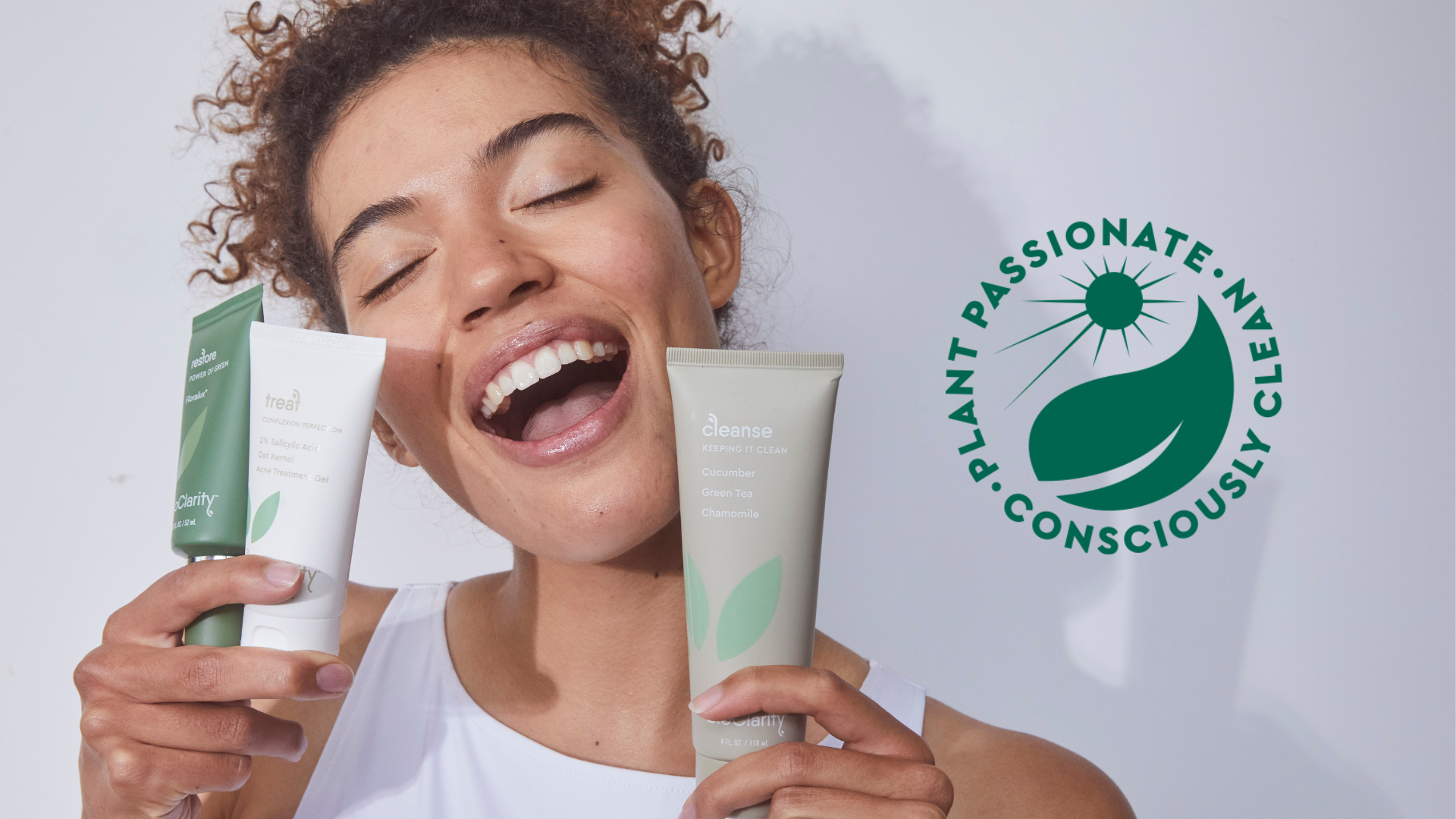

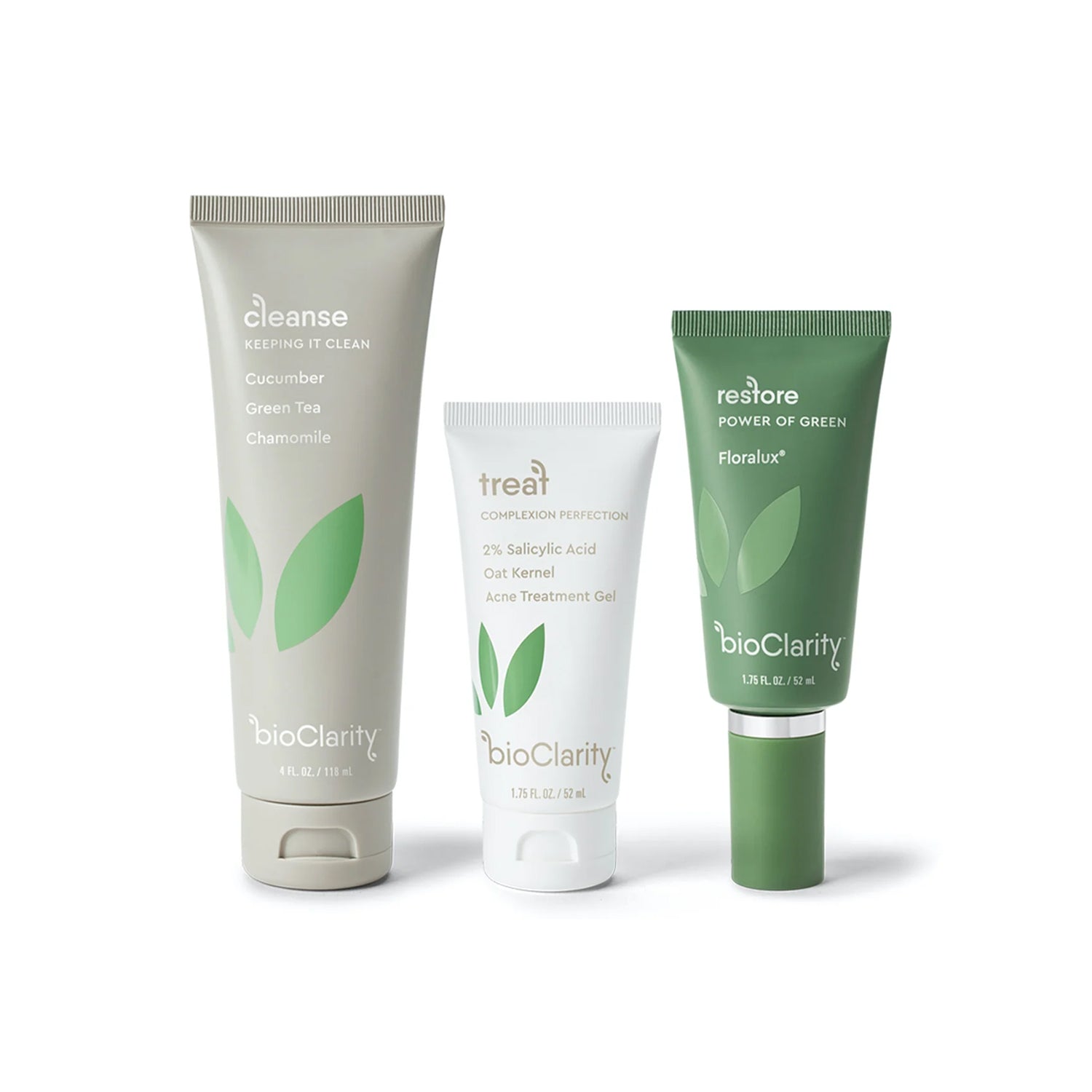
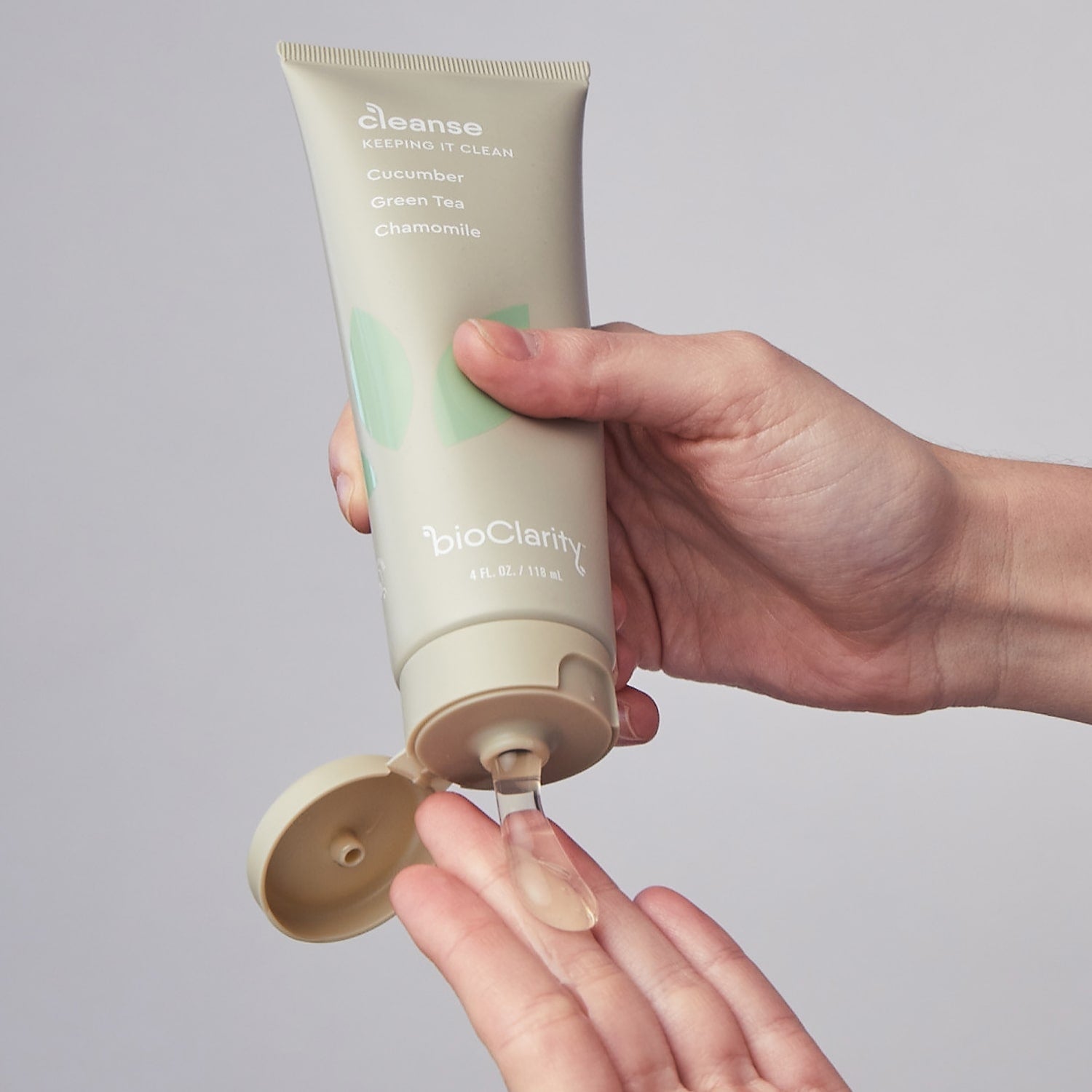
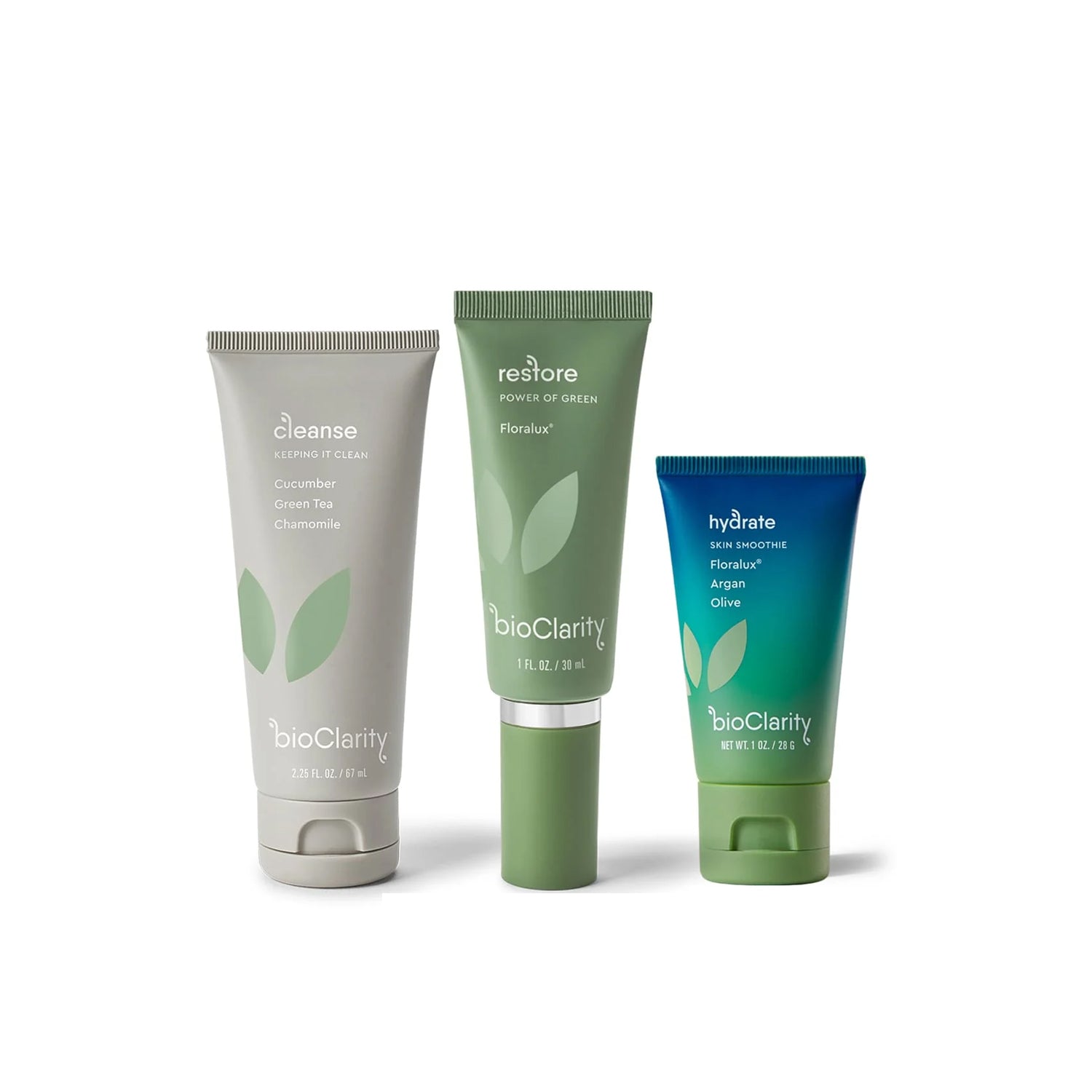
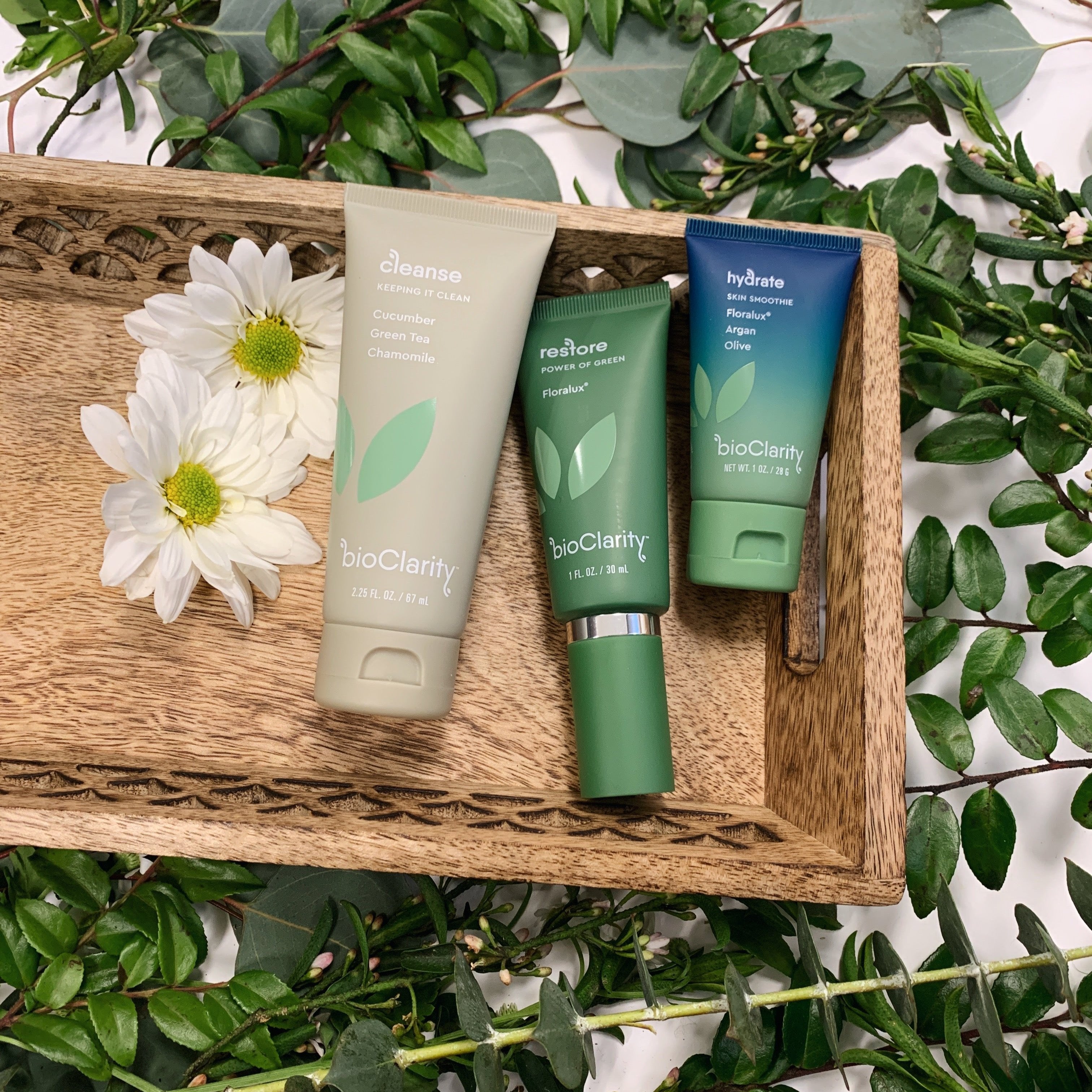
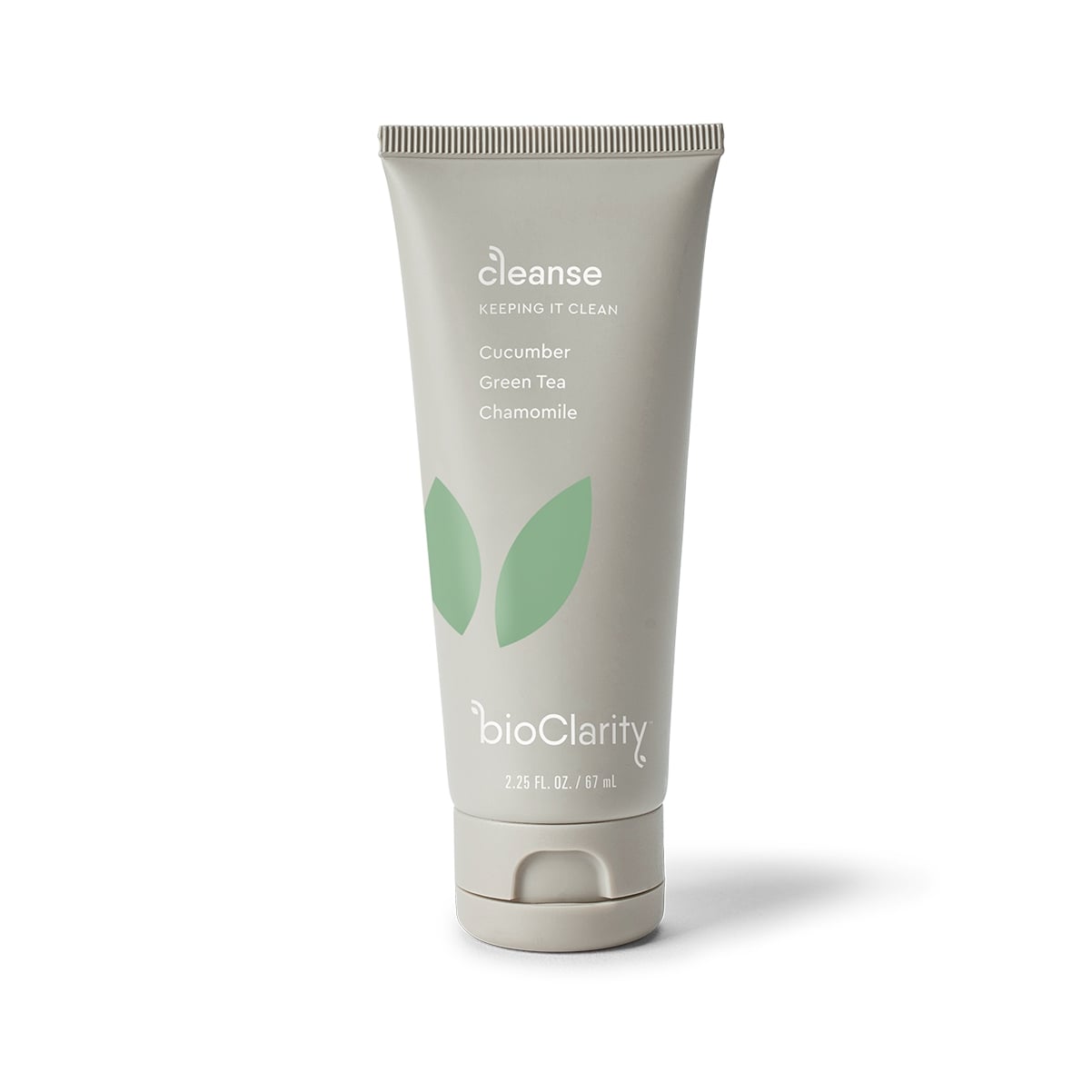
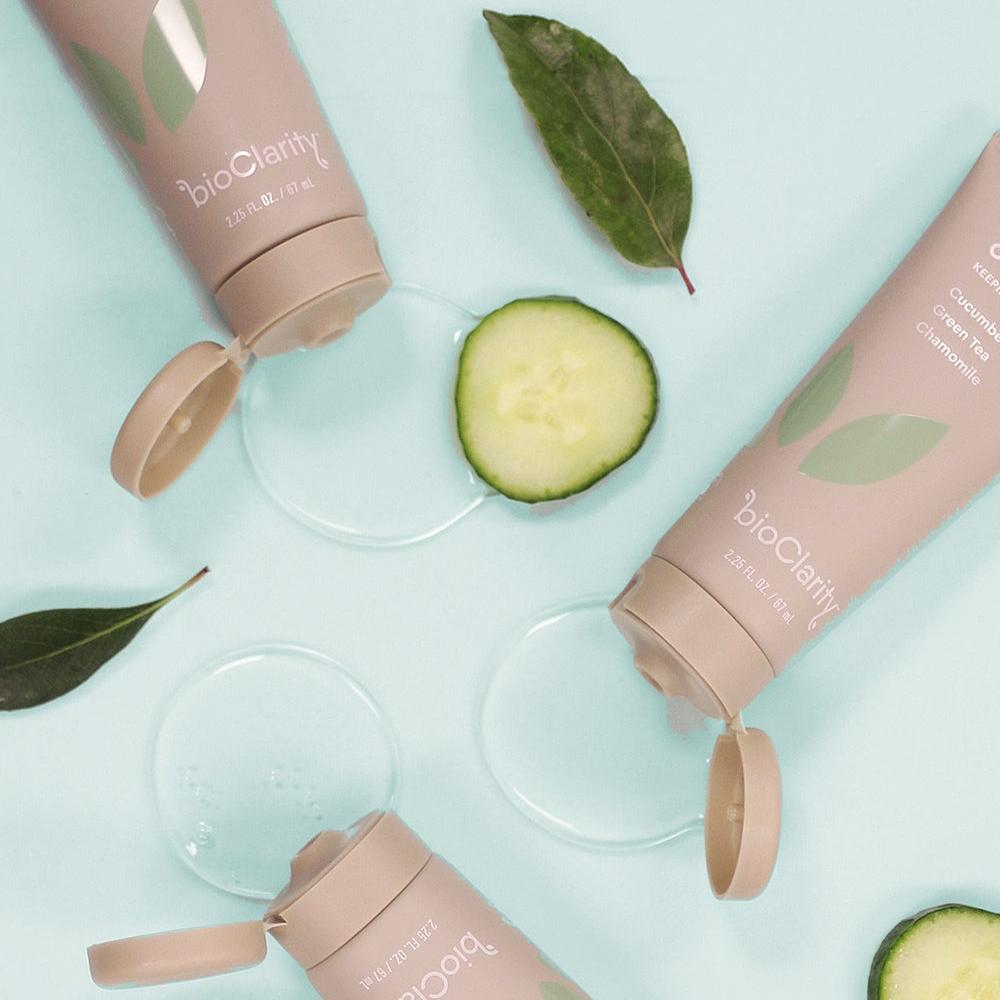
Comments
chandu.A —
such a nice article…
I hope you can do the best in future www.pharmasideeffect.com
Jarred Lawrence —
Great tips to maintain skin care. I take care my skin with most of the tips here and I often prefer to use body wipes to wipe out the sweat that works better than others.